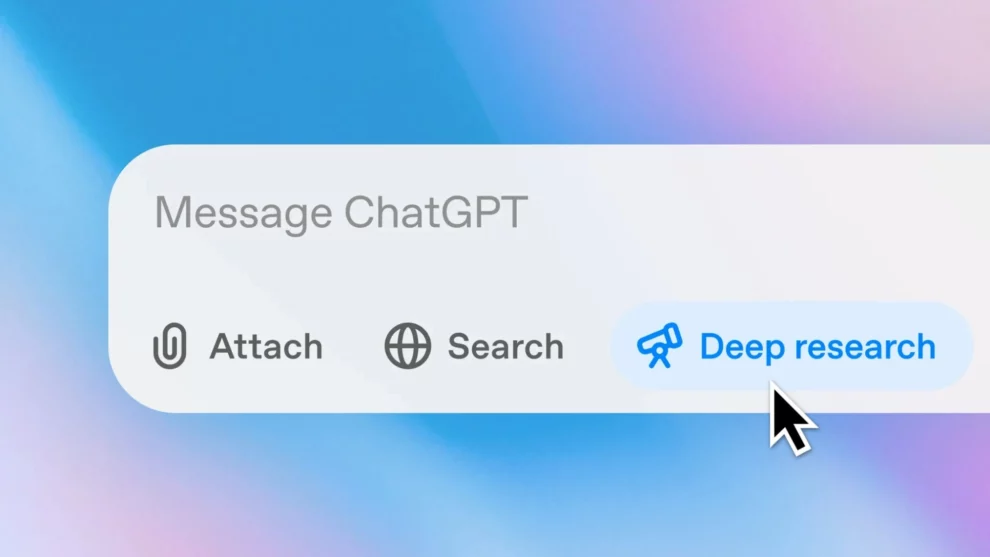OpenAI has unveiled a groundbreaking AI research assistant that promises to transform how professionals and consumers tackle complex research tasks. Deep Research, the latest addition to ChatGPT’s growing capabilities, can reportedly complete extensive internet-based research projects in minutes rather than the hours or days typically required by human analysts.
Sam Altman, OpenAI’s CEO, has enthusiastically dubbed the new tool “like a superpower,” highlighting its ability to function as “experts on demand.” The system’s primary strength lies in its capacity to simultaneously analyze hundreds of online sources, synthesizing the information into comprehensive research reports that rival the work of professional analysts.
The tool‘s versatility extends across multiple professional domains, serving practitioners in finance, science, policy, and engineering sectors. For everyday consumers, Deep Research offers practical applications in making informed purchasing decisions for significant investments like vehicles, home appliances, and furniture. What sets it apart is its ability to provide thorough citations and summaries, enabling users to verify sources and conclusions independently.
Despite its impressive capabilities, OpenAI has maintained transparency about the tool’s current limitations. The company acknowledges that Deep Research may encounter challenges in distinguishing between authoritative information and unverified claims, and sometimes struggles with accurate confidence calibration. Additionally, users might notice minor formatting inconsistencies in reports and citations, though OpenAI expects these issues to improve with continued usage and refinement.
The processing time for Deep Research queries ranges from 5 to 30 minutes, reflecting the computational intensity required for complex analysis. Currently, reports are limited to text format, but OpenAI has announced plans to enhance the output with embedded images, data visualizations, and additional analytical elements in the coming weeks, providing users with richer context and clarity.

Access to Deep Research is initially being rolled out through OpenAI’s Pro tier, priced at $200 monthly, with an allocation of 100 queries per month via web interface. The company plans to expand availability to its Plus, Team, and Enterprise customers soon, with eventual implementation in the free tier. Mobile and desktop app integration is expected by the end of February 2025.
This launch follows closely on the heels of OpenAI’s recent introduction of Operator, an AI agent designed to handle practical web-based tasks such as making reservations, planning trips, and managing grocery orders. Together, these tools represent significant steps toward more sophisticated AI assistance in both research and daily tasks.
The introduction of Deep Research marks a significant milestone in AI-assisted research capabilities, potentially democratizing access to high-quality research analysis. For professionals who regularly conduct extensive research, the tool could dramatically reduce the time and resources required for comprehensive information gathering and analysis.
Altman has encouraged users to test Deep Research on their most challenging work tasks that can be resolved through internet-based research, suggesting confidence in the system’s ability to handle complex queries. This invitation to real-world testing aligns with OpenAI’s iterative approach to product development, where user feedback plays a crucial role in refinement and improvement.
The tool’s development reflects a broader trend in AI advancement, where systems are increasingly capable of handling nuanced, multi-step tasks that previously required significant human expertise and time investment. As AI continues to evolve, tools like Deep Research may fundamentally transform how we approach information gathering and analysis across various professional and personal contexts.
For organizations and individuals considering adoption, the key consideration will be balancing the tool’s efficiency gains against its current limitations and cost. As with any emerging technology, early users will need to verify outputs and develop best practices for integration into existing workflows. Nevertheless, Deep Research represents a significant step forward in AI-assisted research capabilities, potentially marking the beginning of a new era in how we process and synthesize information from the vast expanse of online resources.
















Add Comment